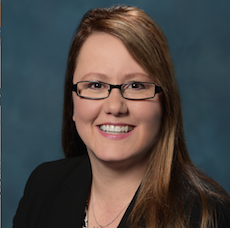
“So, anything else new?” my husband asked after discussing holiday plans, hockey games and other matters during a recent phone call with a relative.
“Well,” she said, and after a brief silence sheepishly began telling him the tale of how she lost $850 to a telephone scammer. She had given him personal information after he claimed to be a technician who had identified a problem with her computer.
It was a surprise that this intelligent woman had fallen for this common ploy — a surprise to my husband and me anyway, and a surprise to the victim, once she realized what had happened. But many smart people are being fooled by sophisticated schemes these days, so the problem increasingly is receiving recognition from the government and the media. Computer technology scams were the topic of an Oct. 21 Senate Committee on Aging hearing, for instance. In September, the Department of Justice announced Elder Justice AmeriCorps, a new grant program to provide legal assistance and support services to victims of elder abuse, neglect and exploitation. Two elder abuse experts explained the concept they call age-associated financial vulnerability in an opinion piece in the Oct. 13 issue of the Annals of Internal Medicine. And the November cover story of Consumer Reports details scams against older adults and what can be done to stop them.
Incidents such as the one involving my husband’s relative are not a surprise to the Federal Trade Commission, either. The commission says that such “imposter scams,” in which someone obtains personal information and/or money from a victim by pretending to be a relative, a potential love interest or someone who works for a bank or a government agency, are the third most common type of scam about which it receives complaints.
Now the commission has developed a campaign called Pass It On that can help your residents educate their peers about imposter scams and five other types of fraud.
“What Pass It On does that’s different is, it takes the approach of respecting older adults’ lifetime of experience rather than a lot of campaigns that talk about older adults as vulnerable, frail victims who need to be protected,” said Lisa Weintraub Schifferle, an attorney with the FTC’s division of consumer and business education. “The premise of Pass It On is, ‘You understand this. You know about scams, but you probably know someone who doesn’t, so pass it on and share what you know,” Schifferle said during a webinar recently offered by the American Health Care Association and National Center for Assisted Living. That approach resonates with older adults, she added.
Pass It On, designed with active older adults in mind, encourages the sharing of information on six types of scams:
-
Identity theft has generated the most complaints to the FTC for more than a decade, according to Schifferle. It can happen through outright theft, imposter scams or a data breach, she added, and caregivers can be a concern for older adults. “It’s very important for older adults and for facilities to carefully screen caregivers, to make sure they’re not prone to theft, and to watch out for warning signs of theft,” Schifferle said. The FTC recommends that consumers be careful in sharing personal information (especially their Social Security numbers) with others, to shred documents that contain personal information after they no longer are needed, to watch for suspicious bills or health insurance explanation of benefits forms, and to check their credit reports every year for free at www.annualcreditreport.com.
-
Impostor scams, the type my husband’s relative fell for, often are revealed by a request for money via a wire transfer or prepaid credit card, either on the phone or via a fake website, Schifferle said.
-
Charity fraud was the most prevalent type of scam seen by operators participating in the AHCA/NCAL webinar. Fraudsters invoke the name of a fictitious charity when they call or visit potential victims. “They twist the name so that it sounds like it’s legitimate, but it’s off a little,” Schifferle said. “They pressure you to pay quickly,” she added, but the FTC advises people to take their time, request information by mail and not to be afraid to say no to solicitors.
-
Healthcare scams encompass claims that someone needs a new insurance card or assertions of miracle cures for Alzheimer’s and other diseases. The FTC recommends that older adults confirm information with reliable sources—in the case of Medicare, for instance, at 1-800-Medicare or www.Medicare.gov.
-
Lottery scams, or what the FTC calls “You’ve won” scams, involve perpetrators offering a prize in exchange for credit card information or money wired to them. “It can really affect people across the economic spectrum, from homeless people…to wealthier people,” Schifferle said. The best way for people to avoid this scam, she added, is for them to keep their money to themselves.
-
“Paying too much” scams involve unauthorized or unexpected charges appearing on a bill. In some cases, the victim could have authorized the payments because of confusion surrounding the terms of a contract he or she signed. People should watch their bills closely, Schifferle advised.
As it turns out, my husband’s relative — eligible for AARP membership but hardly “elderly” — was fortunate. Schifferle shared with webinar attendees the story of a woman who was swindled out of $60,000 in a lottery scam.
Schifferle encourages senior living communities to host events — perhaps with food and prizes, which their research indicates older adults appreciate — during which staff members explain the Pass It On campaign and distribute materials to residents. The Pass It On website includes a video and information about each type of scam, but because older adults often prefer printed materials, the FTC also has prepared one-page articles and bookmarks that communities can order in bulk quantities at no charge. People also can sign up for scam alert emails at the Pass It On website.
For events, the commission also can provide communities with PowerPoint presentations as well as word find games and crossword puzzles related to each type of scam. Communities near Washington, D.C., or a regional FTC office may be able to schedule a presentation by someone from the commission, Schifferle said.
Communities can incorporate information from the materials into their newsletters or post it on bulletin boards. “All of these materials are free and in the public domain. You don’t have to worry about copyright,” Schifferle said. Or communities can simply place Pass It On materials in common areas.
Fraud can be reported on the FTC’s website at www.ftc.gov/complaint or by calling 877-FTC-HELP.

The coffee cup in the Pass It On campaign logo is meant to convey that “this is supposed to be conversational, not scary—just something that somebody can take and pass on to someone else they know,” Schifferle said.
Lois A. Bowers is senior editor of McKnight’s Senior Living. Follow her on Twitter at @Lois_Bowers.



